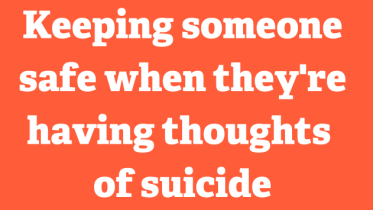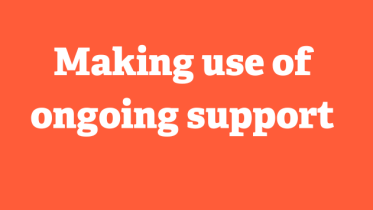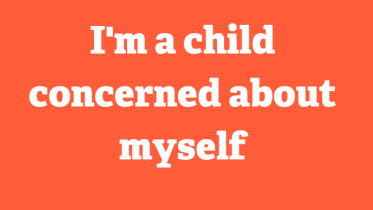If you are experiencing thoughts of suicide and need to talk to someone now, call the Fire Fighters Charity Crisis Line on 0300 373 0896
One of the best ways to help yourself during this period is to tell someone how you’re feeling. Although this may be daunting – and finding the words can be difficult – most people feel a sense of relief once their problems have been shared. Here are some hints and tips to help you through the process.
Tell the right person for you and be open and honest about your feelings.
Jump to: Deciding who to tell | How to tell someone you know | How to tell a health professional | Getting support
Deciding who to tell
There isn’t a right or a wrong way to seek support or tell someone how you’re feeling. There’s also no ‘right’ person to tell and seek support from – the most important thing is to figure out who you feel most comfortable talking to.
Some people prefer to speak to healthcare professionals about how they are feeling, but some – including fire service workers – might find it easier to talk to a friend, loved one or colleague. People you could consider talking to include:
- a close friend;
- a partner, parent or sibling;
- a colleague (e.g. someone in your Watch, team or a mentor);
- a GP, therapist or mental wellbeing professional;
- a support service who can listen, support you or provide practical help.
You could also consider talking to someone from a specialist support service – some are listed below or there are many others available by clicking the Source of Support button.
How to tell a friend, colleague or loved one
It can be difficult knowing how to talk to others about your feelings, even after deciding who to tell. Planning the conversation may make this process less daunting.
If you’ve decided to talk to someone close to you, the following tips may help you to plan the conversation.
- Decide how you’re going to tell them (e.g. in person, or by phone call, text or writing). Choose a method that works best for you and that you feel most comfortable with.
- Decide when you’re going to tell them (e.g. at a weekend, or before or after work). Try to find a time you’re both available to talk without tight time constraints.
- Decide where you’re going to tell them (e.g. at home, while on a walk, or at the mess table). Try to think about where you’d be most comfortable. For example, would you be more comfortable in public or in private?
- Ease them into the conversation. Let them know that what you’re about to say may come as a shock, but that you’re asking and looking for their help.
- Talk as honestly and openly as possible. Be clear about what’s happening, your thoughts and feelings, why you’re asking for help and the things you hope they may be able to do/support you with.
- Let them ask questions, but only answer those you feel comfortable with.
How to tell your GP or a mental health professional/therapist
Some people worry about sharing their feelings with those close to them, so they might prefer to speak to their GP or therapist, or a mental health professional. Others may feel more confident speaking to a medical/mental health professional only after telling someone else first.
If you feel able, you could book an appointment with a health professional – they can listen and discuss the best options to help you now and in the future (e.g., support, counselling or medication).
What to tell them
It can be difficult to know where to start, but here are some things it might be helpful for them to know.
- How you’re feeling now.
- How you’ve been feeling over the past few weeks or months.
- Any pressures, triggers or things that you feel have added to feeling this way.
- The context of any previous self-harm or suicidal behaviour.
- It can be hard to say, but tell them if you’ve been having thoughts of suicide
There’s no shame in asking for help.
If you would like support with your appointment
It’s normal to feel nervous about this, so to help make the appointment less daunting you could:
- ask someone to take you to the appointment and either wait in the waiting room or attend the appointment with you;
- write down what you would like to say to them beforehand and take these notes with you;
- ask for a longer appointment (when booking) if you’re worried about being rushed.
Keeping safe and getting support
Whether you have told someone or not, its important that if you’re feeling really distressed that you keep yourself safe and well, so we have provided details of how to do this HERE, while you look for additional support.
You can find 24/7 support from ourselves and the organisations listed below, with many more options available by clicking on the Sources of Support button.
Fire Fighters Charity Crisis Line…
…Call 0300 373 0896 24 hours a day, 7 days a week. Immediate and ongoing suicide and mental health crisis care for past and present UK fire services personnel.
Samaritans…
…is there for everyone, whatever they may be going through: Call 116 123 (24 hours a day, 7 days a week)
Shout Crisis Line…
…is a free, confidential, 24/7 text messaging support service for anyone who is struggling to cope: Text SHOUT to 85258




